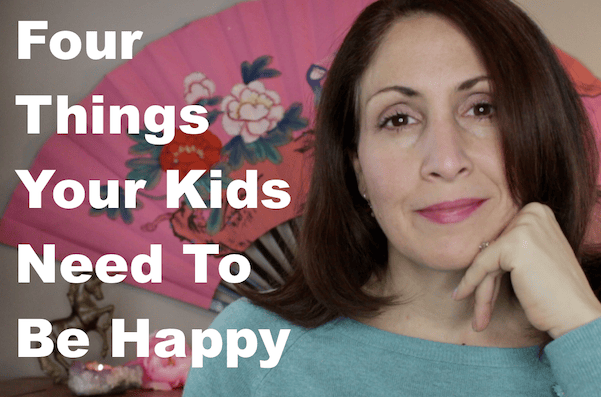Some people are born with an innate sense of what others feel. They have a good imagination and consciously direct it to put themselves in another person’s shoes.
Perhaps at one point in the etymology of the word empathy, it meant that “you know what another feels because you have been through the same thing.” (Like this video says.) I disagree. That kind of empathy cannot exist.
No two people’s lives are identical. Even if you’ve been through a similar “something awful,” your experience of that “awful” is informed by all your past experiences (as well as your understanding of those experiences). It is also informed by your health, your self-image, your relationships, and your spirituality. There are infinite ways to experience the same “something awful,” so no person can possibly know exactly what another feels. We truly can only imagine.
However, that imagination can be very powerful for the person and for the people around them.
Can You Teach Empathy?
Some kids have less empathy than others, but luckily empathy can be taught. They learn by practicing it. Check out this research article about it. When young people understand the benefits of having empathy, they might more readily embrace learning it. (I speak about the benefits in this video⬇︎)
Empathy can increase happiness in life. In this video, I share the reasons we need to teach our kids empathy and then share four practices that help them learn how to cultivate it.

Four Ways to Teach Empathy to Your Kids
Why Teaching Empathy is Important to Emotional Wellness
When kids can understand what another person is going through, this helps them read the world. When you can read the world, you are less vulnerable, and you feel more in control. Having insight into what is happening inside people’s minds and hearts helps you interact with them in ways that are better for both of you.
For example, if you know someone is in physical pain, you may not take it as personally when they snap at you. It doesn’t make it okay that they snapped at you, but it helps you not feel as bad. Plus, from that clarity on why they did what they did, you’ll know how to respond to their crabbiness. Empathy helps you feel less hurt, facilitates strong bonds between you and the people around you, and gives you a sense of purpose in those connections. Alternatively, empathy can alert you to step away from someone that can potentially hurt you.
Empathy makes you feel like helping others. When you see people hurting or feeling unloved, you feel motivated to take action to show them that they matter, giving them belonging and acceptance, and you meaningful existence. Watch my previous video for why you need those to be happy.

How to Teach Empathy
Here are the four ways to get started doing right now to teach your kids empathy:
- Practice empathy by discussing characters and events from movies, TV, or books. This is so great because there is often nothing in the way of this learning. No fear, baggage, or hurt feelings to wade through, and this may help kids gain easier access to their empathy skills.
- Use the imagination. Kids and teens have great imaginations. (If you don’t believe me, watch a couple of TikTok videos. Those kids are so clever!) Have them close their eyes and imagine: If you were ________, how would you feel?
- Model empathy. Your kids are witnessing how you respond to them when they are feeling bad. This is a good time to model empathy! Also, let your kids see you (and participate) when you are thoughtful with people going through a hard time. Do you send flowers, offer help, or make dinner when friends are struggling?
- Teach them to take a step back. This is one of the best skills a person can have to cope with life. People can do this once they have compassion for themselves, which you teach them by having empathy for them!
I hope you liked my video. If so, I would love for you to share it!
Empathy vs. Sympathy: What is The Difference?
Both empathy and sympathy are made from the Greek word “pathos,” which means suffering. They are both a response to suffering.
Sympathy is feeling bad when you know the facts of someone else’s suffering. Empathy is deeper and feels better to the recipient. It is a sense of understanding the suffering of someone else because you can imagine it by putting yourself in their shoes.
You may be wondering about where being “empathic” fits in here. Literally, the definitions of empathetic and empathic are interchangeable, but the connotation of being “empathic” is an intuitive feeling that surpasses regular empathy.
I also mention compassion in this video because I understand compassion as a loving act of empathy. A way of showing your empathy in a loving way to someone that helps them feel worthiness, cared for, and understood.

Tell me your favorite part of these videos: